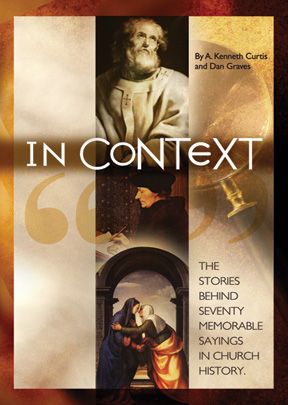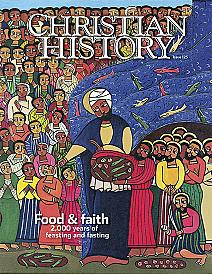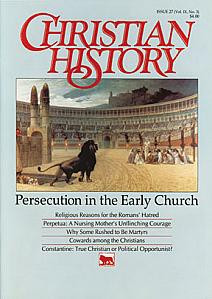Ignatius of Antioch Fed the Beasts in Rome
IGNATIUS was bishop of Antioch (in Syria) for forty years, probably from AD 67–106, and became a martyr. Most likely he studied under the Apostle John.
Ignatius was an energetic man who raised the church of Antioch to prominence and dominated the surrounding region. In fact, he was the prototype of bishops as later understood by the Roman church—distinct from priests and deacons, and possessing authority over a region. Ignatius demanded submission to the office of the bishop. He also is the first writer known to have spoken of the church as “catholic,” meaning “whole” or “universal.”
During the reign of Trajan, Ignatius’ influence brought him into trouble with Roman authorities. Christianity was an illegal religion. Trajan arrested him and sent him to Rome. It was a long and difficult trip, sometimes by land, sometimes by sea. Ignatius was chained between soldiers, who treated him more cruelly the kinder he was to them. At stops along the way, messengers from churches met him with words of affection and sorrow. Ignatius hastily wrote letters for them to take back to their congregations. These letters shed light on his thinking and on church conditions at the start of the second century. So famous were they that people forged additions to support their own positions. Seven of the ones we now have are considered genuine.
One of the letters was written to Rome, the city where Ignatius was to die. Ignatius’ convoy moved so slowly that a messenger going ahead had time to get there before him. He pleaded with Rome’s Christians not to try to save him. “Nearness to the sword is nearness to God; to be among the wild beasts is to be in the arms of God; only let it be in the name of Jesus Christ. I endure all things that I may suffer together with him, since he who became perfect man strengthens me.”
The public spectacles were about to close for the day when Ignatius at last reached Rome. He was hustled to the arena and thrown to two fierce lions, who immediately devoured him. According to tradition, he died on this day, 17 October 107.
—Dan Graves
------------
For a deeper look at Ignatius's famous saying, "I am the wheat of God," read Article #5 from In Context
and read "Eating (and not eating) with the church fathers" in Christian History #125, Food and faith
For more on Ignatius's martyrdom, read "The Gallery: Martyrs and Confessors" in Christian History #27, Persecution in the Early Church
Learn more about the faith and suffering of early believers in The Trial and Testimony of the Early Church
The Trial and Testimony of the Early Church can also be streamed at RedeemTV








